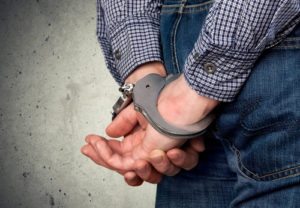Legally Reviewed By:
Brian P. Gabriel, Esquire
Police around the country may resort to several methods to get drunk drivers off the streets. Some of these methods are sensible, for example, observing a driver’s patterns prior to making a traffic stop in order to have probable cause for the stop. Others incite controversy for limiting the protections granted to each citizen against government interference without due process.
According to the CDC, nearly 30% of traffic fatalities in the United States in 2016 were linked to drunk driving. This adds up to an average of thirty (30) people per day. While the numbers are high, only a tiny fraction of drivers is actually a threat to the public. Studies have revealed that impaired drivers with a minimum of a 0.08% BAC involved in fatal crashes are seven times more likely to have been convicted of DUI in the past. To catch these drivers, law enforcement officers have a duty to act rationally when identifying suspects. The biggest problem in their endeavor to take impaired drivers off the road lies in how they determine probable cause for arrest.
Sneaky Ways Police Catch Suspected Drunk Drivers
Picture this: a college student on the day of the big game is pulled over by local police, who have set up DUI checkpoints on campus. The officer pulls the driver over because he swerved and asks the student to submit to a breathalyzer test. The panicked student admits to having a beer or two after the game. The breath test detects alcohol in his system but he tests below the legal limit. He is arrested anyway but not convicted. After the school finds out about the arrest, his entire future is put on hold.
The college student scenario is a common occurrence that happens much more frequently than you may think. A DUI suspect must submit to field sobriety tests and a portable breath test, which means that, without an attorney present, he or she must provide a piece of evidence that could lead to his or her own arrest. The collection of breath samples for DUI tests has been protected since the 1950s by implied consent laws, which generally state that a person consents to DUI testing when he or she signs up for a driver’s license. There are consequences for refusing to submit to a breath test in Florida despite the fact that results from portable tests are not allowed to be used in court as evidence.
Florida’s State-Approved Breathalyzer Raises Concerns
It is widely assumed that breath tests are infallible, so these tests only impact the lives of those who are truly a threat to other drivers; but time and time again, over years of DUI litigation, this has been proven false. The Intoxilyzer 8000, for example, is Florida’s only approved breath test for evidentiary use. This is the test that a suspect takes after he has been arrested and taken to the nearest precinct. Throughout the country, each state that relies on the I-8000 has encountered a load of issues. From reporting humanly impossible blood alcohol concentration levels to wrongly detecting mouth alcohol and delivering skewed results or false positives, defense attorneys throughout the country have long fought over allowing these results in court.
Hundreds of false convictions have sent innocent drivers to jail. People have lost their driving privileges, jobs, and have served time due to faulty results. The worst part is that they are also penalized for refusing to submit to the test, which is a violation of 4th and 5th amendment rights that is not allowed under any other circumstance but DUI. In Florida, you could lose your driving privileges for one year if you refuse to incriminate yourself by taking the test.
Supreme Court Rules Search Warrants are Unnecessary for DUI Breath Tests
Despite the clear infringement on personal freedoms, the United States Supreme Court recently ruled that law enforcement personnel do not need warrants to receive breath samples, declaring the test noninvasive. It is an ongoing battle between dedicated DUI defense attorneys and the courts, but progress is being made at every turn.
A DUI Lawyer You can Count on for a Proper Defense
If you have been arrested for DUI in Florida, you’ll be pleased to know that attorney Brian Gabriel has led the fight against the Intoxilyzer 8000 in Palm Beach County for years. He has over 30 years of experience defending an array of clients against various DUI charges throughout Palm Beach County. The moment you face charges, be sure to contact The Law Office of Gabriel & Gabriel at 561-622-5575 for a free legal consultation.



